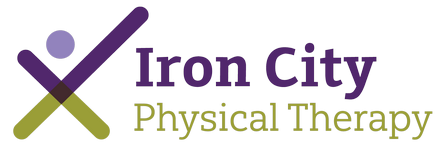According to the National Sleep Foundation, sleep is a vital component to our health and well-being. While all of the key functions of sleep have not yet been fully uncovered, research suggests that sleep plays an important role in tissue healing, memory, motivation, mood, judgment, perception of events, weight regulation and cleaning of toxins from the brain.
 Unfortunately, many individuals skimp on sleep for various reasons including work and family demands, and even to watch TV. Not getting enough sleep puts you at risk for many health conditions including high blood pressure, obesity, coronary heart disease, diabetes, stroke, mental health disorders, and may even contribute to early death. Even a lack of sleep for one night can have negative effects the next day – you’ll likely feel sleepy, be less productive at work, be in a bad mood, and you’re also more likely to be involved in a motor vehicle accident.
Unfortunately, many individuals skimp on sleep for various reasons including work and family demands, and even to watch TV. Not getting enough sleep puts you at risk for many health conditions including high blood pressure, obesity, coronary heart disease, diabetes, stroke, mental health disorders, and may even contribute to early death. Even a lack of sleep for one night can have negative effects the next day – you’ll likely feel sleepy, be less productive at work, be in a bad mood, and you’re also more likely to be involved in a motor vehicle accident.
The amount of sleep you need for good health fluctuates depending on your age. The American Academy of Sleep Medicine and the Sleep Research Society recommend:
- Infants (4 to 12 months) - 12-16 hours in a 24-hour period, including naps
- Toddlers (1 to 2 years) - 11 to 14 hours in a 24-hour period, including naps
- Pre-schoolers (3 to 5 years) - 10 to 13 hours in a 24-hour period, including naps
- School-aged children (6 to 12 years) - 9 to 12 hours in a 24-hour period
- Teenagers (13 to 18 years) - 8 to 10 hours in a 24-hour period
- Adults (18+ years) - 7 of more hours per night
While the amount of sleep you get is important, it’s essential that your sleep is good quality.
You might be wondering, how do I know if I’m getting enough, quality sleep? Signs of poor sleep quality include excessive tiredness after sleeping for a full night, repeatedly waking up throughout the night, snoring, and/or gasping for air, which may suggest that you have a sleeping disorder.
In order to enjoy quality sleep, it’s important that you adjust your sleep routine to encourage better sleep. The Centers for Disease Control and Prevention (CDC) recommends the following tips to improve your sleep habits:
- Consistency is key – aim to go to bed and wake up at the same time each day, including weekends.
- Relax – engage in a relaxing activity shortly before bed, a relaxing bath, reading, etc., which can help your brain and body relax and promote better sleep.
- Set up a cozy sleeping environment – ensure that your room is quiet, dark and at a comfortable temperature.
- Ditch the gadgets – remove all electronic devices, including cell phones, laptops, and TV from your bedroom. In particular, refrain from screen time 60 minutes before you want to go to sleep as the blue light emitted is known to stimulate the brain making sleep more difficult.
- Limit food and drinks – avoid eating large meals, and limit caffeine and alcohol use for 2 to 3 hours before bed.
- Exercise – engage in physical activity throughout the day, however, avoid vigorous exercise for 2 to 3 hours before bed.
If you want to learn how to get a better night’s sleep, you may benefit from physical therapy. Undergoing a comprehensive evaluation by a physical therapist at Iron City Physical Therapy is a great way to gain an understanding of how you can enhance your sleep.
After the assessment, our physical therapists will create a program that is specific to your needs, which will help to improve your sleep habits and help you get a better night’s sleep.
References
1. Why sleep is important. Apa.org. 2018. Available at: http://www.apa.org/topics/sleep/why.aspx. Accessed February 12, 2018.
2. Sleep, Learning, and Memory | Healthy Sleep. Healthysleep.med.harvard.edu. 2018. Available at: http://healthysleep.med.harvard.edu/healthy/matters/benefits-of-sleep/learning-memory. Accessed February 12, 2018.
3. Cbc.ca. 2018. Available at: http://www.cbc.ca/natureofthings/episodes/while-your-were-sleeping. Accessed February 12, 2018.
4. Getting enough sleep? Centers for Disease Control and Prevention. 2018. Available at: https://www.cdc.gov/features/sleep/index.html. Accessed February 12, 2018.




